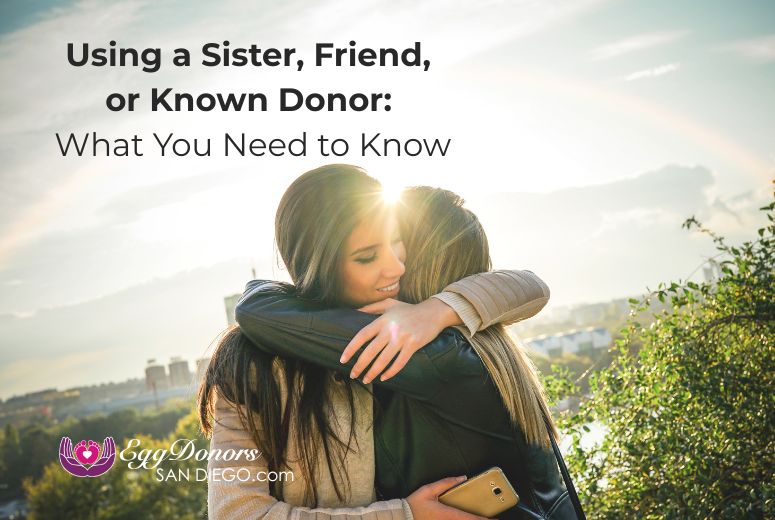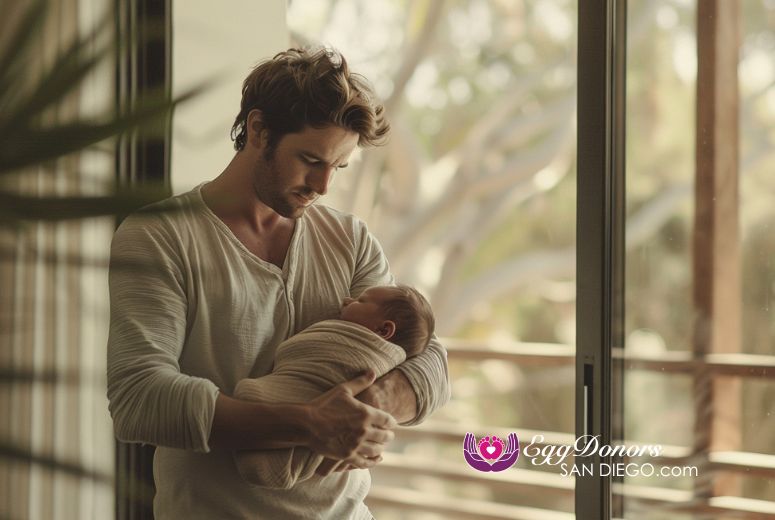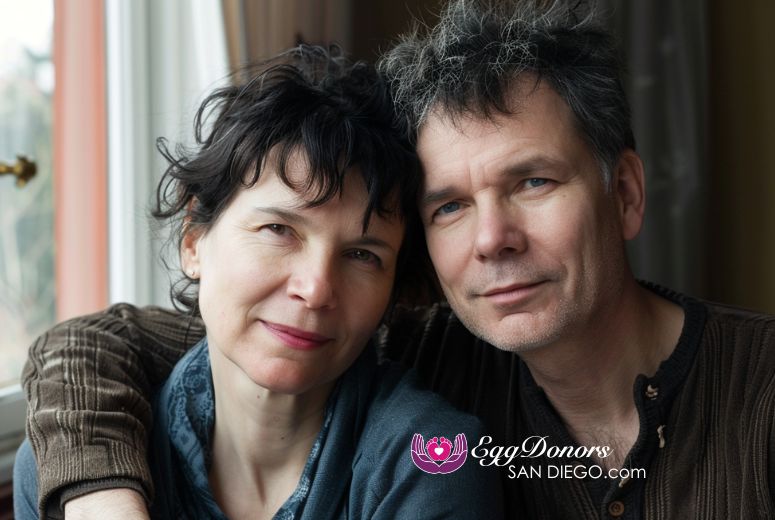Egg donation is a deeply personal decision, and many intended parents wonder if they should consider using a known egg donor—such as a sister, friend, or someone they already trust. Unlike anonymous donation, this pathway adds layers of emotional, legal, and relational complexity. Yet, for many, the possibility of maintaining a genetic relationship in egg donation feels meaningful and worth exploring.
Dr. Minoos Hosseinzadeh, Founder and Medical Director at Fertility Institute of San Diego and EggDonorsSanDiego.com, explains: “When families explore using a sister or friend as their egg donor, the journey is often guided by trust and shared values. But medical, legal, and emotional safeguards are absolutely essential to ensure the process is both ethical and sustainable.”
How the Known Donor Process Works
The known egg donor process begins much like traditional egg donation. The donor undergoes comprehensive medical, genetic, and psychological screening to ensure she is a safe and healthy candidate.
Steps typically include:
- Medical screening for egg donors: hormone testing, ultrasounds, infectious disease screening
- Genetic testing: evaluating hereditary risk factors
- Psychological counseling for egg donation: preparing both donor and recipient for the emotional dynamics
- Legal contracts: establishing boundaries and rights through known donor agreements
Why Families Consider a Known Donor
There are several reasons intended parents might consider using a known egg donor:
- Desire for a genetic link within the family (e.g., a sister as egg donor)
- Emotional trust and comfort when the donor is a close friend
- Transparency about medical history and long-term health
- Reduced uncertainty compared to an anonymous donor
Dr. Hosseinzadeh adds: “Known donation can be profoundly rewarding, but it is not without challenges. Family dynamics, donor-recipient relationship boundaries, and future expectations must all be openly discussed.”
Who Might Choose a Sister, Friend, or Known Donor?
- Couples or individuals seeking a sibling genetic connection
- LGBTQ+ families who want a donor within their community
- Single parents by choice who value transparency over anonymity
- Families with limited access to anonymous donor databases
When to Involve Professionals
Because this process involves nuanced legal and emotional layers, it’s important to engage professionals early. Fertility clinics, attorneys, and counselors help ensure that all parties understand expectations and obligations. Without legal safeguards, risks of using a known donor may include custody disputes, blurred family roles, or complications in future relationships.
Emotional Implications of Egg Donation
Using a sister or friend as an egg donor often raises profound emotional considerations.
- Donor perspective: balancing generosity with personal boundaries
- Recipient perspective: managing gratitude, guilt, or pressure
- Future child perspective: understanding their genetic origins in a clear, healthy way
Dr. Hosseinzadeh emphasizes: “We encourage psychological counseling for every known donor arrangement. It ensures that future conversations—particularly with the child—are built on honesty and emotional readiness.”
Risks and Complications
While medically safe under clinical oversight, known donation still carries risks:
- Complications from ovarian stimulation and egg retrieval
- Strained family or friend relationships if boundaries are unclear
- Emotional fallout if treatment is unsuccessful
Prevention and Boundaries
Establishing donor-recipient relationship boundaries is critical. This includes discussing:
- Future contact and involvement in the child’s life
- Confidentiality and privacy preferences
- Financial responsibilities and coverage of donor medical costs
Types of Treatment Available
When using a known egg donor, treatment options include:
- IVF with the donor’s eggs and recipient’s partner’s sperm
- IVF with donor eggs and donor sperm for LGBTQ+ couples or single parents
- Surrogacy combined with a known egg donor for intended parents who cannot carry a pregnancy
Costs of Using a Known Donor
While compensation may not apply when the donor is a friend or sister, costs remain for:
- Fertility clinic egg donor requirements (screenings, medications, procedures)
- Attorney fees for drafting known donor agreements
- Counseling sessions for both donor and recipient
- IVF cycle expenses and possible surrogacy involvement
For some families, costs are lower compared to anonymous donors, but they must budget for comprehensive safeguards.
FAQs
Consider medical, emotional, and family dynamics—supported by counseling and legal contracts.
Pros: trust, transparency, shared history. Cons: potential strain on friendship and blurred roles.
It depends on family preferences—anonymous donors offer privacy, while known donors provide transparency.
Through medical exams, infectious disease testing, genetic testing, psychological evaluations, and legal clearance before treatment.
Exploring using a known egg donor is a highly personal journey, requiring careful thought and professional support. Whether considering a sister, friend, or trusted individual, transparency and guidance are key to ensuring the process leads to joy, not conflict.
If you’re ready to start your egg donation process, click here.









